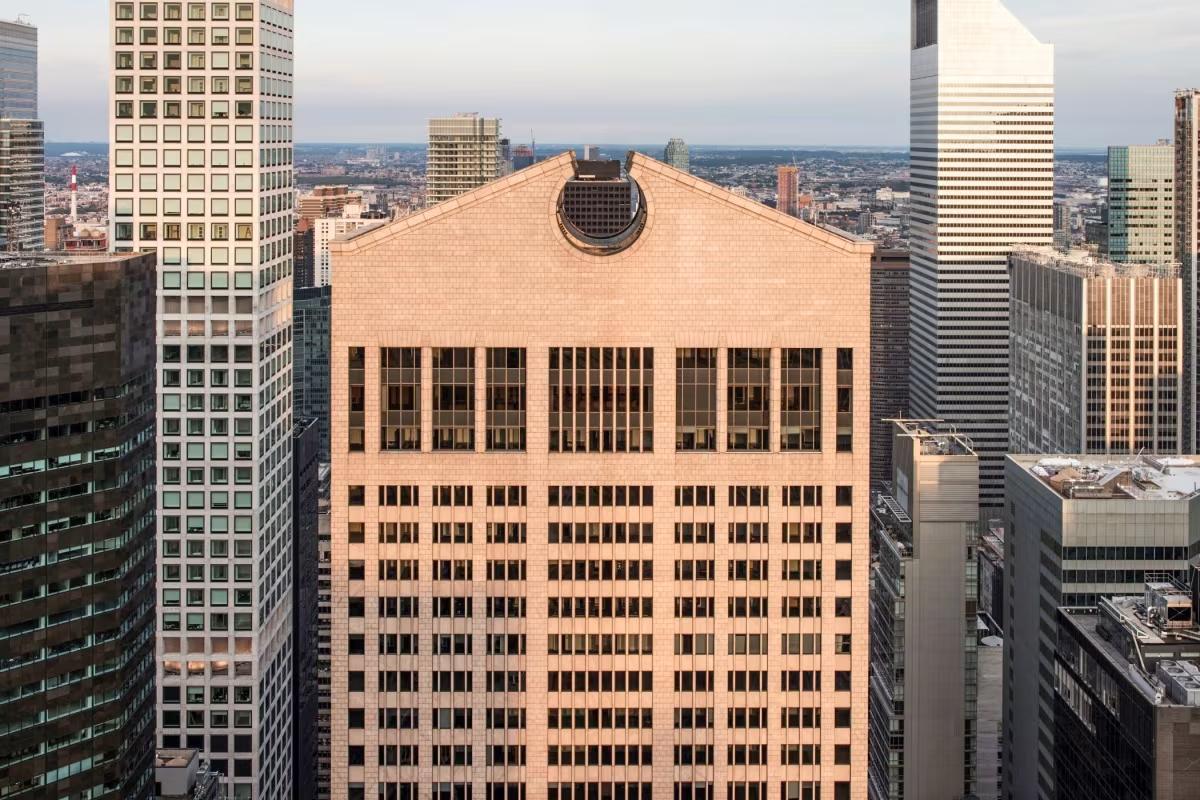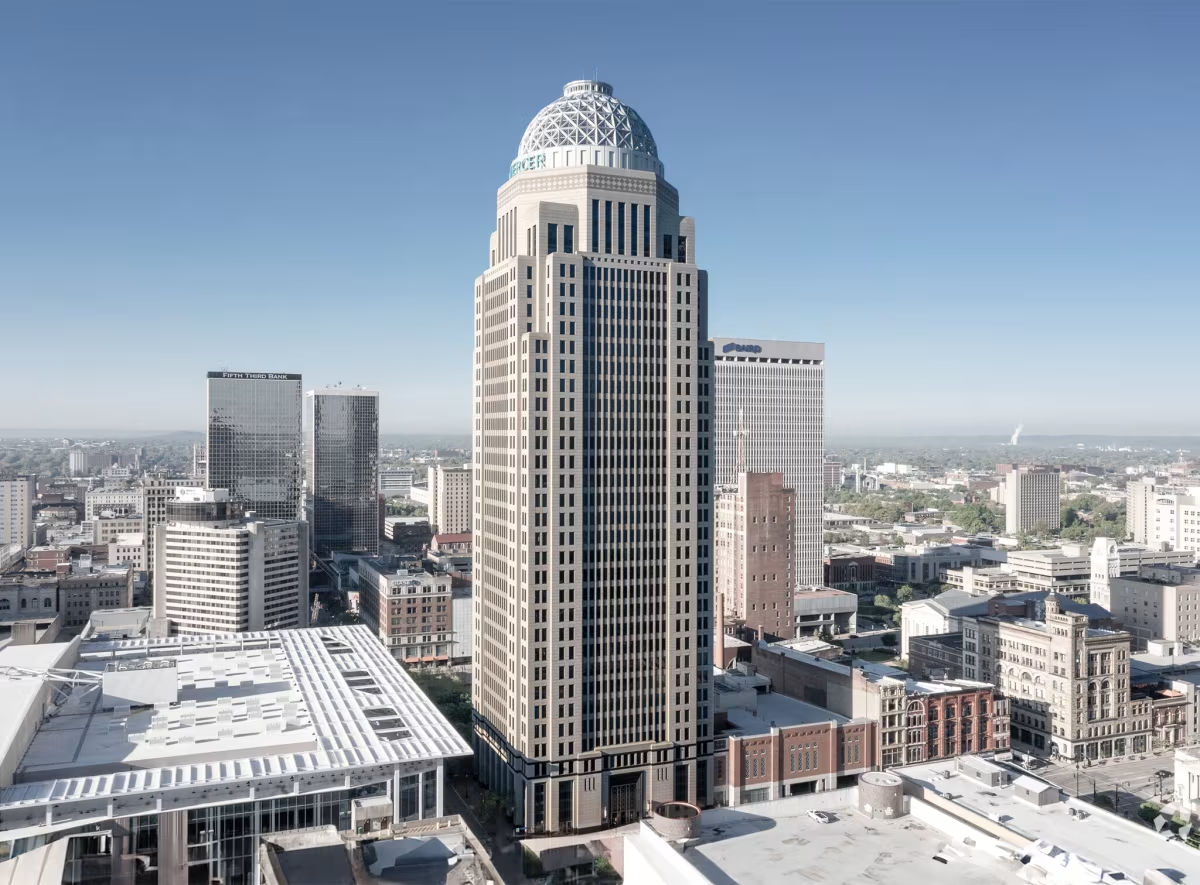550 Madison Avenue vs 400 West Market


Comparing the 550 Madison Avenue and the 400 West Market is compelling because they were both designed by Johnson/Burgee Architects, yet they stand in different cities (New York, NY and Louisville, KY), and were completed more than 9 years apart.
What this will allow us to see, is how the same firm's approach adapted to different places at roughly the same time (9 years isn't that much time when it comes to urban context and architecture).
Height & Size
The 550 Madison Avenue is clearly the larger tower of the two, both in terms of height and number of floors. It rises to 646ft (197m) with 37 floors above ground, while the 400 West Market reaches 548ft (167m) with 35 floors above ground.
Of course, each project may have faced different briefs or regulatory constraints, which we don't really know about and could also explain the outcome.
Architectural Style
Both the 550 Madison Avenue and the 400 West Market were designed in line with the aesthetic conventions of the Postmodernism style.
The 400 West Market was designed at a moment when the Postmodernism style was already in decline, making it more of a lingering expression of the movement. In contrast, the 550 Madison Avenue was built when the style still carried greater cultural weight.
Uses
Both the 550 Madison Avenue and the 400 West Market were designed to serve as commercial towers, and that has remained their main use since their completion, serving similar roles in the urban fabric.
Both towers provide significant parking capacity, with 550 Madison Avenue offering 20 spaces and the 400 West Market offering 789.
Structure & Facade
Both the 550 Madison Avenue and the 400 West Market rely on a Frame structural system.
A frame structure uses a grid of columns and beams to carry the building's loads. This frees the walls from structural duties, allowing for flexible floor plans and larger windows.
They also employ the same type of facade, a Modular facade.
A modular facade is made of prefabricated panels, sometimes resembling stone or masonry, combined with smaller windows. It provides variety while maintaining efficiency in installation.
| 550 Madison Avenue | 400 West Market | |
|---|---|---|
| Johnson/Burgee Architects | Architect | Johnson/Burgee Architects |
| 1981 | Construction Started | 1991 |
| 1984 | Year Completed | 1993 |
| Postmodernism | Architectural Style | Postmodernism |
| Commercial | Current Use | Commercial |
| 37 | Floors Above Ground | 35 |
| 197 m | Height (m) | 167 m |
| 63,650 m² | Usable Area (m²) | 58,868 m² |
| Frame | Structure Type | Frame |
| Steel | Vertical Structure Material | Reinforced Concrete |
| Concrete And Steel | Horizontal Structure Material | Steel And Concrete |
| Yes | Facade Structural? | No |
| Granite, Glass | Main Facade Material | Glass, Steel, Granite |
| American Telephone & Telegraph | Developer | Gerald D. Hines Interests |
| NY | State | KY |
| New York | City | Louisville |
| 550 Madison Avenue | Address | 400 West Market Street |